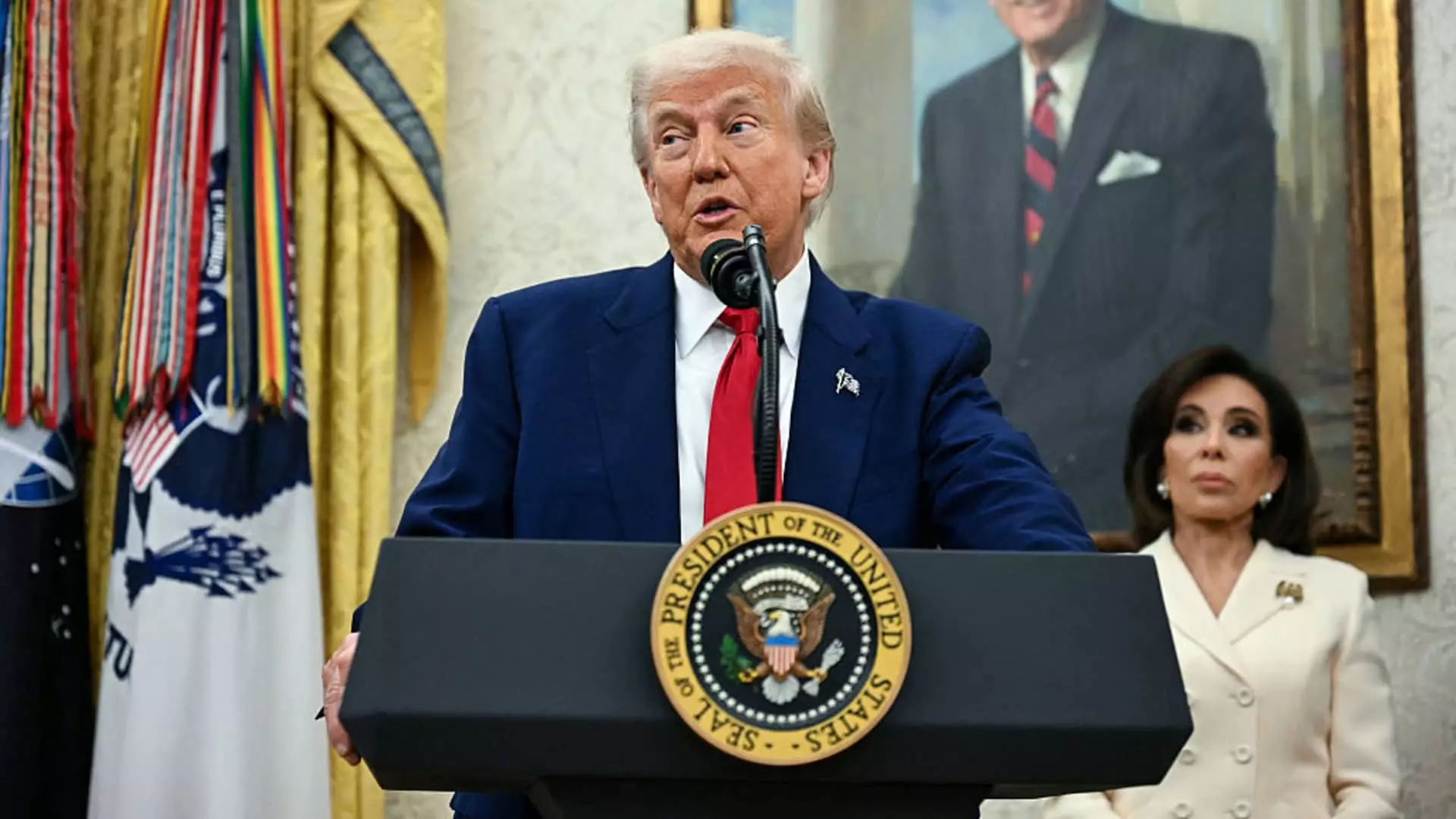The trade policies of President Donald Trump can be likened to a musical composition rife with dissonance; one moment resolute, the next, revisit to a gentler tune. The recent phenomenon dubbed “TACO trade,” aptly summarizing his flip-flop approach—”Trump Always Chickens Out”—illustrates a glaring inconsistency in his dealings. Each bold proclamation of heavy tariffs sends tremors through the stock market, only for him to recede days later. This perpetual seesaw not only creates uncertainty but raises legitimate questions about the effectiveness of his negotiation tactics. Are these threats genuine, or merely bluster intended to project strength?
Trump’s insistence that market fluctuations following his tariff announcements signal negotiation success feels more like a masquerade than a reality. When he states, “It’s called negotiation,” he seems divorced from the immediate consequences—companies feeling the pinch, investors retreating from markets, and consumers bracing for price hikes. The prioritization of short-term wins over long-term stability forces one to wonder whether the strongman rhetoric is a smokescreen for an underlying fear of failure.
The Misguided Perception of Strength
A critical component of effective leadership and negotiation involves clarity and consistency. Yet Trump’s trade strategy exemplifies a chaotic cycle of threats met with retreat, making the administration’s objectives opaque. For an economically literate populace, this back-and-forth is not just frustrating; it’s dizzying. The economy thrives on predictability, and Trump’s unreliability jeopardizes not only his credibility but also economic growth. When he touts delays in tariff implementation as a feather in his cap, one must question whether these concessions come from a place of strength or a realization of the volatility that his earlier stances have wrought.
Claiming that the EU is responding positively to his aggressive tactics sounds more like wishful thinking than an empirical assessment. The fact that markets rebound when he softens stances should not be misconstrued as successful strategy; rather, it speaks volumes about investor sentiment yearning for stability amidst erratic leadership.
The Chilling Impact of Trade War Policies
Trump’s “negotiations” with China serve as a stark reminder of the collateral damage inflicted on various sectors. He elevates tariffs with dramatic flair, only to retreat under the weight of market realities. A trade war should not be a mere battleground of ego and bravado; it’s a complicated web of international relations and economic partnerships. Each hasty rise and fall of tariff rates increases the very stakes he claims to wrest control over. The idea that these volatile maneuvers can somehow end in favorable deals is not only naive but perilously shortsighted.
To expect beneficial outcomes from a strategy that employs intimidation, rather than cooperation, is fundamentally flawed. True negotiation is about understanding the multifaceted dynamics that govern international trade—something that appears to be lost in Trump’s blustering proclamations.
Such chaotic diplomacy is symptomatic of a larger issue within his administration: a troubling disregard for the long-term implications of policy decisions in favor of immediate, attention-grabbing rhetoric. The world watches, increasingly skeptical of whether the U.S. can be a reliable partner in trade, and the extent to which Trump’s tumultuous tactics can produce any tangible benefits remains an open question. The melody of this trade tango may one day resolve, but for now, the discord is unmistakably palpable.



Leave a Reply